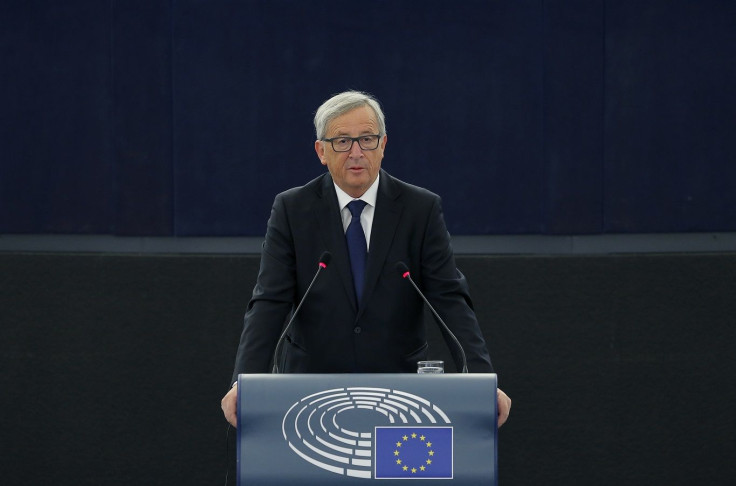EU Interior ministers emergency meeting in Brussels fails to break ice: No consensus on fixing refugee quota for states

The emergency meeting of interior ministers from European Union states held in Brussels could not deliver a major breakthrough in solving the refugee imbroglio faced by many EU members. The meeting failed to agree on a mandatory quota for each state. At the end of the meeting, the sole decision taken was to voluntarily share some 40,000 migrants now languishing in Greece and Italy.
The ministers failed to reach any consensus on accepting the EU Commission president’s diktat for a fixed quota on the basis of the respective resources of the state. The plan floated by Jean-Claude Juncker, president of the European Commission, was to resettle 120,000 asylum seekers, through fixed quotas.
Juncker’s proposal was to work out a quota for each member state under a formula that considers a country's GDP, unemployment rate, population, and number of asylum applications received in the first half of the decade.
Distribution opposed
Juncker’s proposal of compulsory distribution of migrants was mainly opposed by East and Central European countries.
“This proposal is not solving the problem,” Robert Kalinak, the Slovak interior minister told reporters. There was staunch resistance from Czech Republic, Hungary, Romania and Baltic States, which voiced their deep reservations about accepting refugees, arguing that they have no precedent or tradition of having taken people from different cultures. They also cited their small economies, which cannot sustain the refugee influx as most of the migrants are looking to live in richer and welcoming places such as Germany and Scandinavia, the New York Times reported.
To placate the opponents, Germany, Sweden and others agreed to tighten measures against migrants not having the right qualifications, and ensure the swift return of such refugees to countries deemed safe. Finally, it was decided to hold another meeting on Oct.8.
Rising curbs
Even as ministers were pondering aloud in Brussels over the next steps, states such as Austria, Slovakia and the Netherlands tightened the border controls, inspired by Germany’s stepped up checks on its southwestern frontier and curbs on train traffic from Austria.
"We have not reached a decision on quotas and details of relocation," German interior minister Thomas de Maizière said after the EU emergency meeting, Vox News reported.
The German minister sounded vaguely optimistic on the next meeting.
“An EU meeting on October 8 will have to bring the regulations concerned with itself," de Maizière added.
Meanwhile, Elizabeth Collett, director of the Migration Policy Institute Europe, said Europe’s difficulty in finding a common approach is reflective of the flaws in its system, whose rules and institutions are “only half built." The ultimate EU goal of building a fully integrated European state "has never been decided," the expert noted.
For feedback/comments, contact the writer at feedback@ibtimes.com.au or let us know what you think below.





















